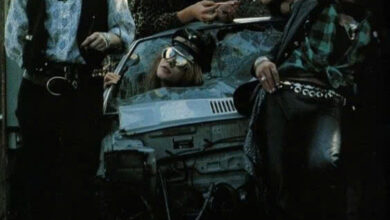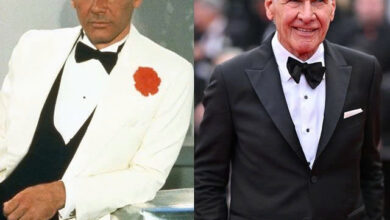Spike Lee Explains How He Acquired a Rare Prince Song for ‘BlacKkKlansman’
OPINION: This article may contain commentary which reflects the author's opinion.
Spike Lee’s connection with Prince goes far beyond professional collaboration—it’s rooted in a decades-long friendship and mutual admiration. Over the years, Lee and the legendary artist worked together, most notably on Prince’s “Money Don’t Matter 2Night” video and the 1996 film “Girl 6,” which featured an entire soundtrack pulled from Prince’s expansive career. Their bond continued through moments of celebration and mourning, including the block party Lee threw in honor of Prince just hours after his passing in April 2016, which has since become an annual Brooklyn tradition.
Given their history, it’s not a surprise that a rare Prince song finds its place in Spike Lee’s 2018 film BlacKkKlansman, which has been praised as one of Lee’s most powerful works in over a decade. The film, based on the true story of Ron Stallworth, an African-American cop who infiltrated the Ku Klux Klan in the 1970s, serves as both a historical narrative and a searing commentary on modern-day racism in America. Its climax includes footage from the 2017 Charlottesville white supremacist rally, a tragic event where a young woman, Heather Heyer, was killed when a car plowed into a crowd of protesters. As the heartbreaking footage rolls, viewers hear a rare recording of Prince singing the spiritual “Mary Don’t You Weep.”
This song, originally recorded in the mid-1980s and long circulated among bootleg collectors, will be included on the posthumous album Piano & a Microphone 1983, set for official release by Warner Bros. and Prince’s estate. But how did Spike Lee manage to acquire such a rare gem for his film?
In an interview with Rolling Stone, Lee shared how his close relationship with Troy Carter, an entertainment advisor to the Prince estate, was pivotal. Carter attended a private screening of BlacKkKlansman, and afterward, he presented Lee with the suggestion that would become integral to the film’s finale: “Mary Don’t You Weep.”
“I knew that I needed an end-credits song,” Lee explained. “After the screening, Troy said, ‘Spike, I got the song.’ And that was ‘Mary Don’t You Weep,’ which had been recorded on cassette in the mid-‘80s.”
For Lee, the acquisition of the song was more than a lucky discovery—it felt like a gift from Prince himself. “Prince wanted me to have that song, I don’t care what nobody says,” Lee remarked. “There’s no other explanation to me. This cassette is in the back of the vaults. In Paisley Park. And all of a sudden, out of nowhere, it’s discovered? Nah-ah. That ain’t an accident!”
Lee emphasized the importance of the song and the scene, especially in light of the events in Charlottesville. The raw emotional power of “Mary Don’t You Weep”, with its deep historical resonance as a Negro spiritual, brings a somber weight to the film’s conclusion. Before using the footage, Lee sought permission from Heather Heyer’s mother, Susan Bro. He wanted to ensure that such a significant moment in American history was treated with the respect it deserved.
“When Charlottesville happened, I knew that was going to be the ending,” Lee said. “This is someone whose daughter has been murdered in an American act of terrorism… Mrs. Bro no longer has a daughter because an American terrorist drove that car down that crowded street. And even people who know that thing is coming, when they see it, it’s like, very quiet. People sit there and listen to Prince singing a Negro spiritual, ‘Mary Don’t You Weep.’”
The inclusion of the song is more than a soundtrack choice—it is an emotional and spiritual companion to the film’s message, encapsulating the sorrow and resilience of the African-American experience. Lee’s decision to pair it with the harrowing Charlottesville footage adds an undeniable gravitas to BlacKkKlansman, turning the film’s ending into a haunting reflection on America’s ongoing struggle with racism and violence.
With “Mary Don’t You Weep” anchoring this powerful moment, Spike Lee ensures that Prince’s legacy continues to resonate not only through his music but through the impact it has on the broader conversations of justice and humanity.



